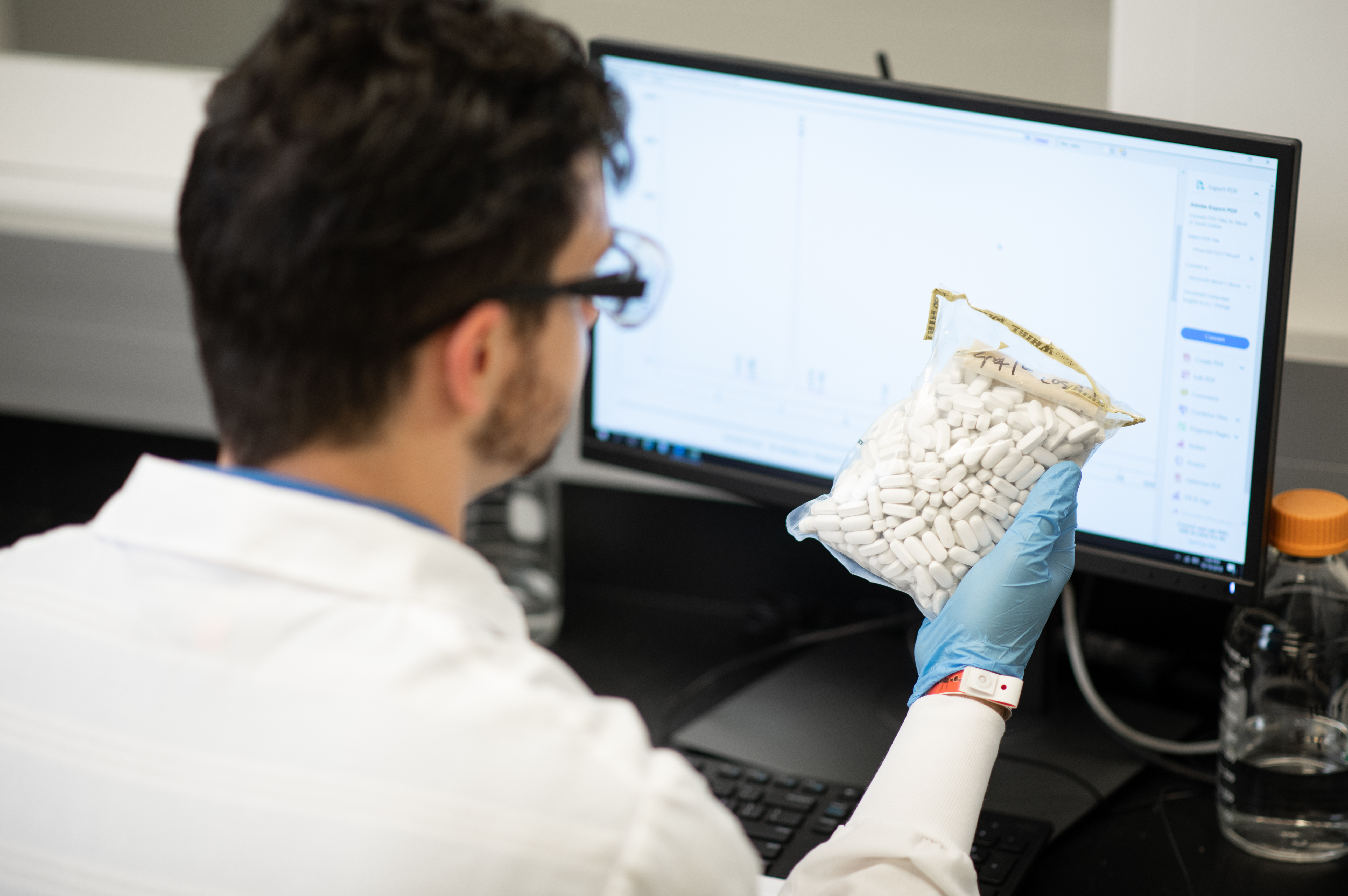Data Management and Productivity Improvements in the Laboratory

Many laboratories within the dietary supplement industry are moving to LIMS systems with good reason! They can support increased productivity and reduce waste meaning a more lean approach to laboratory activities.
What is a LIMS system?
LIMS stands for Laboratory Information Management System. It is a software that manages data generation, analysis and reporting. It helps laboratories to improve and align by running more efficiently. A LIMS system does this by automating tasks or interfacing with laboratory instrumentation. A LIMS system can support better management of resources by allocating testing or inventory management of supplies and regents as well as reducing paper based systems which lead to easier laboratory management.
Changing Regulations
The dietary supplement industry is changing. With new requirements and regulations being added (such as the recently released August, 2019 Guidance for Industry detailing information about conversion of units for nutrition and supplement facts labels) or new markets and regulations, a laboratory can support regulatory compliance for sample management, data traceability and the regulatory hot topic from adjacent industries, data integrity. A LIMS system logs dates, times, samples, testing information and results attributed to users with readable audit trails all driven by controlled user access within the system.
Improving Efficiencies
A LIMS system allows for automation of data capture and improved communications and data visibility between departments within the company. This means information is available real-time reducing time wasted on ineffective communication models such as email or phone which provides not only benefits to the organization, in delivering of information but also benefits to the laboratory in sample management, analysis and data handling.
The laboratory can utilize resource allocation and work planning such as scheduling maintenance and calibrations of instruments, manage testing priorities and managing inventory and ordering of consumables and reagents meaning improved planning within the laboratory.
A LIMS system is an exciting prospect to improve life in the laboratory for analysts and supporting the organization with clear communication and regulatory compliance.
The Science Behind Collagen Supplements

Collagen and its side kick Coconut (MCT) oil are often paired together. This combination of nutrients is one of the most popular dietary supplements of our time. Media spending to advertise Collagen and hydrolyzed Collagen make them among the top ten spends in the Dietary Supplement industry.
All the hype isn’t positive either. It seems that every week, there’s a new article that either supports the use of collagen, or warns that it’s totally useless. I recently read a negative article on collagen that compared it to gelatin (gummies, Jello and Knox gelatin).
My topic addressed in this blog is about how collagen is digested, absorbed and utilized by the body. Perhaps most importantly, we will explore the role of collagen supplements in the all-important collagen synthesis that only babies seem to get enough of.
So what is collagen?
There are two collagens. The first is protein found in the bodies of animals and humans. This is the substance in such high demand in our aging bodies. The second is supplemental collagen that we consume with the food we eat or in a more digestible form in the supplements we consume.
Collagen is the most abundant protein found in the connective tissues of the body and is most famous for its role in skin, hair and nail health. Collagen is the holy grail of anti-aging cosmetics.
But of course, as is the case with most marketing campaigns targeted at men and women with appearance insecurities, it’s not commonly explained how collagen works and how the body produces and uses it. So no, collagen isn’t just found in the skin and its main role isn’t just to make us look younger.
As a side note here, collagen is NOT a complete protein—so please, don’t stop eating protein from plant and animal sources every day. Collagen is a great addition to the everyday diet, but not a good replacement.
Where is collagen found?
Collagen is found in hair, skin, nails, ligaments, cartilage, tendons, bones and within blood vessel walls—all considered to be “connective tissue” in the body. Collagen accounts for roughly ninety percent of the dry weight making up the middle layer of skin called the dermis. The dermal layer of the skin provides the scaffolding for the tissue, which is why when the dermis is dehydrated, repeatedly overexposed to sunlight or damaged in any way, the appearance of the skin is impacted and the scaffolding becomes negatively affected in some way.
The collagen used in supplements with is found primarily in bovine, porcine and marine connective tissue, particularly in the skin, bones and scales. When you make a stock or soup with animal or fish bones, you tap into the marrow, bones, ligaments and tendons. This has been a popular and nutritious option for generations.
Is collagen effective when used topically?
Despite the rationale for its use in skincare products, collagen is too big of a molecule to pass through the epidermis (the outer most layer of skin), let alone reach its target dermal layer. This is why most “anti-aging” topical creams are made with the individual components of collagen, like glycosaminoglycans (or GAGs) and hyaluronic acid. These are the building blocks of healthy tissue. Mostly though, collagen supplements are best at moisturizing the skin.
Can supplemental collagen really be absorbed and used in the body?
There has been speculation as to the efficacy of taking collagen as a supplement. Meaning, can it actually get to our skin and aid in our body’s own collagen production?
- There have been numerous animal studies that have proven oral collagen’s ability to get into the skin and other connective tissues. A few of these studies have radio-labelled collagen peptides in order to follow them from ingestion to skin cells. These studies have shown collagen peptides to remain elevated in the skin for up to 14 days! What we don’t know is if the collagen penetrates to living tissue or just floats in a sea of dead skin cells.
- In one human clinical trial, researchers reported that the key peptides within collagen are absorbed intact from the GI tract and are delivered to target tissue such as the skin. Studies in humans have found that the peptides in collagen peak in the blood after 2 hours, but remain significantly elevated even after 4 hours. These small peptide units from oral collagen supplementation then provide the raw materials for human collagen production. The important variable to note in all human studies thus far have used hydrolyzed collagen (this means that it’s “predigested” in order to be better absorbed) in their clinical application—this allows for the greatest absorption and assimilation.
- Once the collagen peptides have been absorbed by the body, what do they do? There have been dozens of human studies that show that collagen can increase hydration of skin and reduce the visible signs of aging, improve joint discomfort, lessen recovery time after an injury, improve physical performance, increase bone mineral density, provide cardiovascular support and even improve overall wellbeing.
Will supplementing with collagen bring about miraculous changes to your skin and body?
Using collagen as a supplement is meant to be a cog in the collective wheel of your health. Meaning, you have to ensure your skin is well hydrated. You need to exercise to allow for increased blood flow to the body and skin and for greater detoxification and stress relief. You need to eat a healthy diet.
What to look for when buying collagen?
Look for a collagen that tells you its source. For optimal absorption, look for hydrolyzed collagen or collagen peptides. This has been predigested for maximum uptake by the body. Many brands try to romance collagen by adding essential oils and antioxidants, some are flavored and some are unflavored. The most important thing is to trust your brand.
